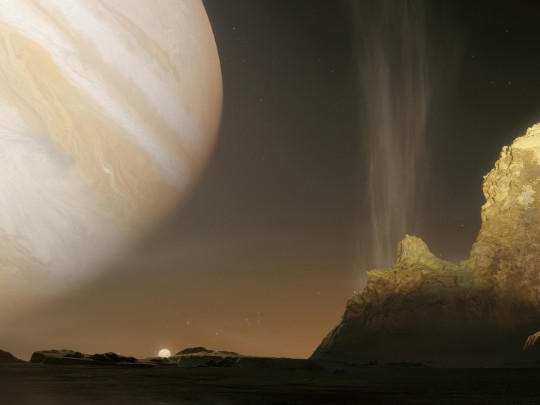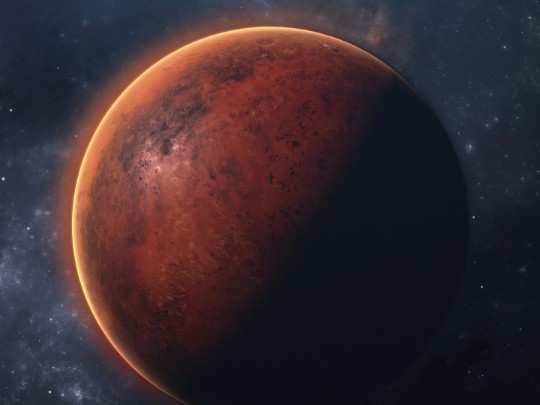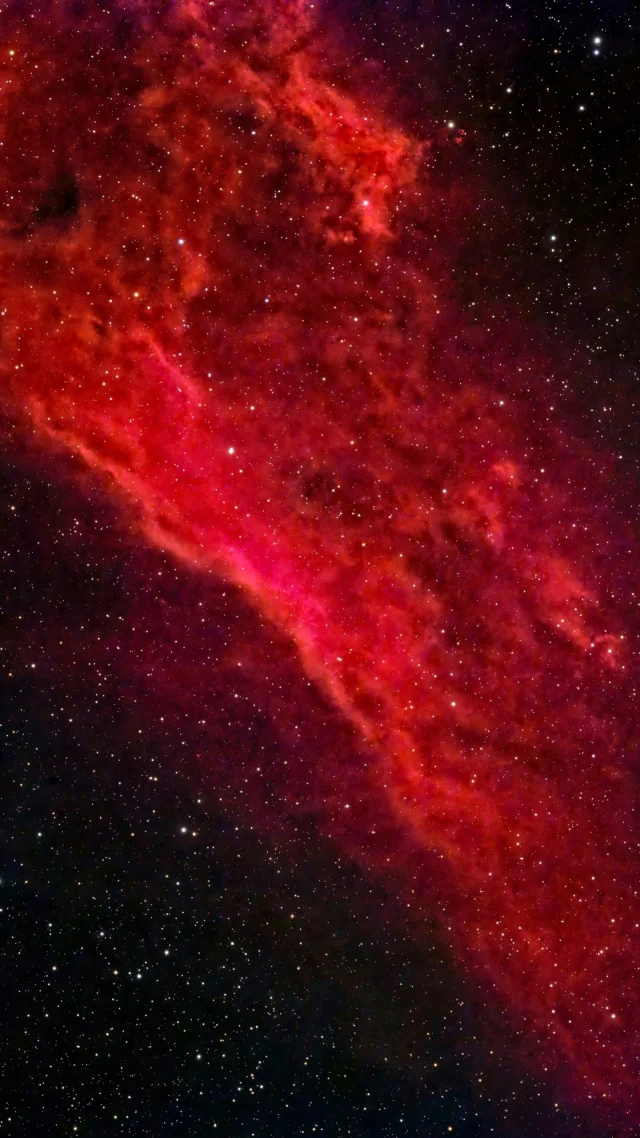Could Life Exist on Jupiter's Moons? A Rover's Mission to Europa and Beyond

Exploring the Jovian System: Beyond Jupiter Itself
While landing on Jupiter itself is currently beyond our technological capabilities, the real excitement lies in exploring its intriguing moons. Europa, Ganymede, and Callisto – each a unique and potentially habitable world – are high-priority targets for future robotic missions. Imagine a scenario: a cutting-edge rover, specifically engineered to endure Jupiter’s intense radiation belts and extremely cold temperatures, touches down on the icy surface of Europa.
Europa: A Subsurface Ocean and the Search for Life
What would this intrepid rover discover? The prevailing scientific theory suggests a vast, liquid ocean lurking beneath Europa’s thick ice shell. Our hypothetical rover would be equipped with advanced ice-penetrating radar systems and robust drills, designed to analyze the ice's composition and actively search for hydrothermal vents. These vents, similar to those found on Earth's ocean floor, could provide the energy and chemical building blocks necessary to support life – even microbial life.
The landscape encountered would be dramatically different from anything on Earth. Picture expansive plains of ice, crisscrossed by fractures resulting from tectonic activity, and potentially punctuated by cryovolcanoes – volcanoes that erupt with water, ammonia, and other icy compounds instead of molten rock. This truly would be an alien landscape, a testament to the diversity of worlds within our solar system.
Beyond Europa: Ganymede and Callisto
Europa isn't the only moon holding secrets. Ganymede, the largest moon in our solar system, possesses its own magnetic field and, remarkably, a subsurface ocean. Callisto, on the other hand, presents a heavily cratered surface, a visual record of a long and tumultuous history, hinting at potential subsurface activity as well. Each moon presents a distinct set of challenges and the promise of groundbreaking discoveries.
The Potential Rewards: Revolutionizing Our Understanding
The data gathered by these future rovers would revolutionize our understanding of Jupiter and its entire system. More importantly, it could potentially answer one of humanity’s most profound questions: are we alone in the universe? The possibility of finding evidence of life, even in the simplest microbial form, on a moon of Jupiter is a powerful motivator behind these ambitious exploration plans. This isn't just about exploring space; it's about understanding our place within it.

![Kia Ora, Golden Hour Magic: Unveiling the Beauty of [Coastal City Name] at Dusk](https://wp-cdn.anyselected.com/prod/e1/38/e1380226b239505c3ac7e6c4417e8e64.jpg?re_source=none)



